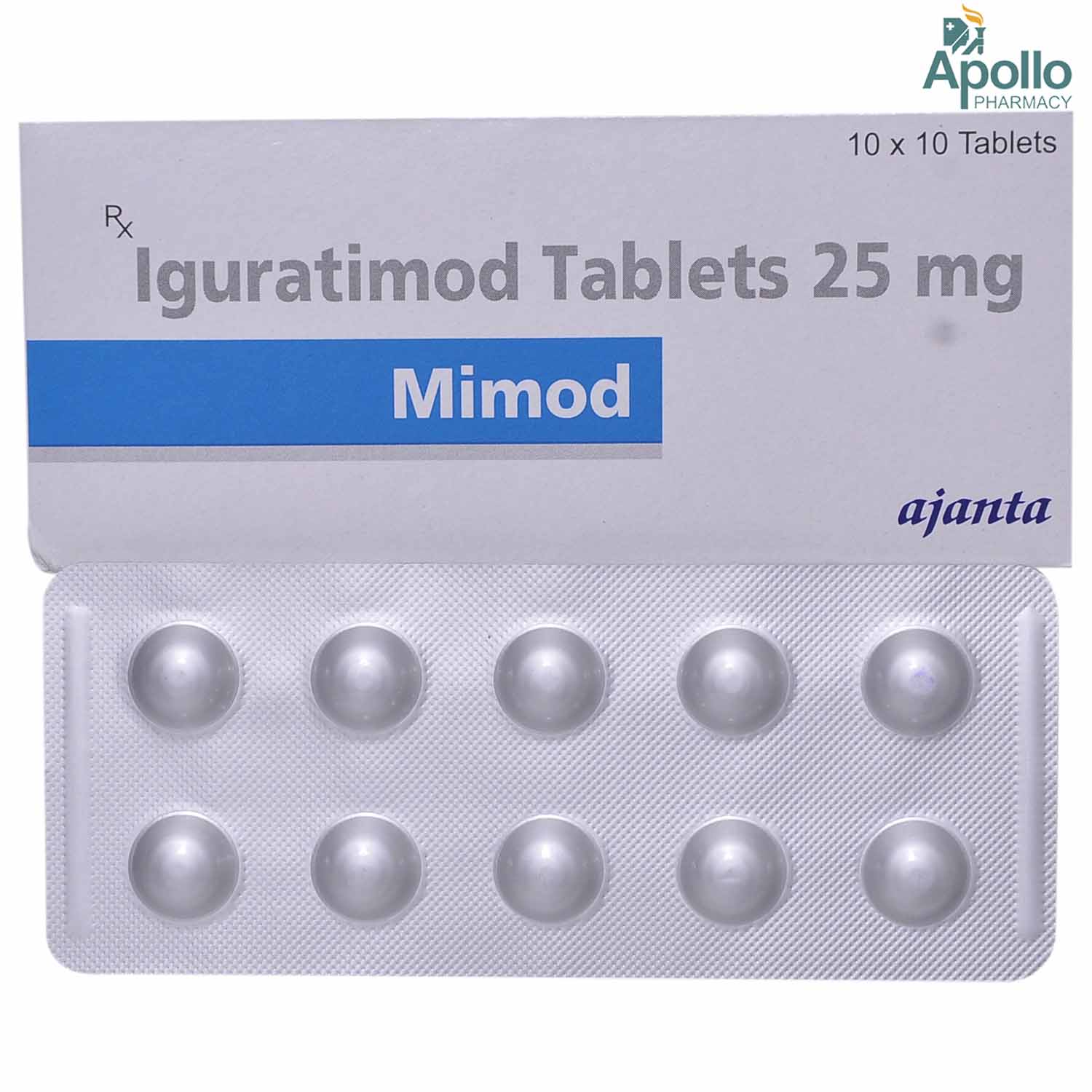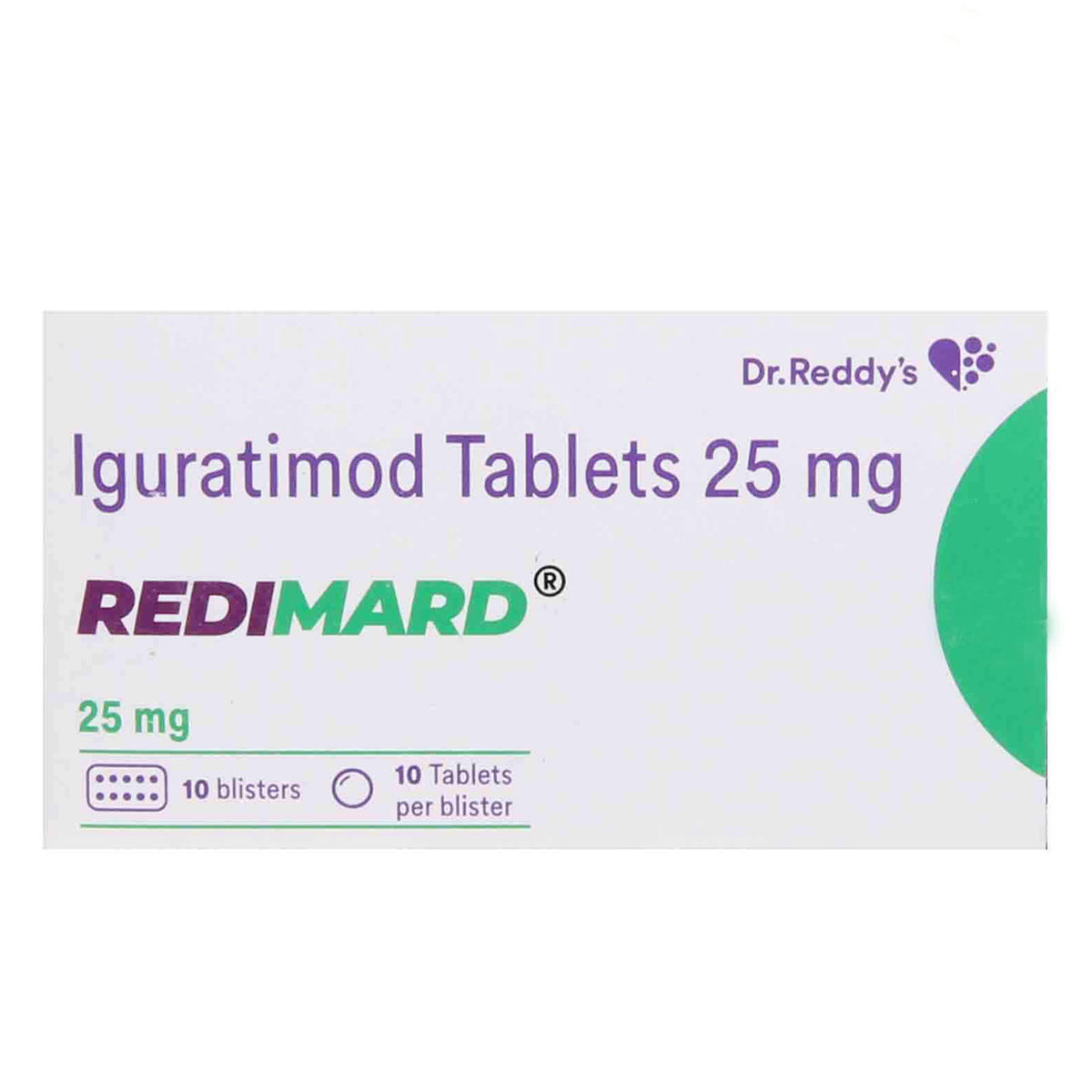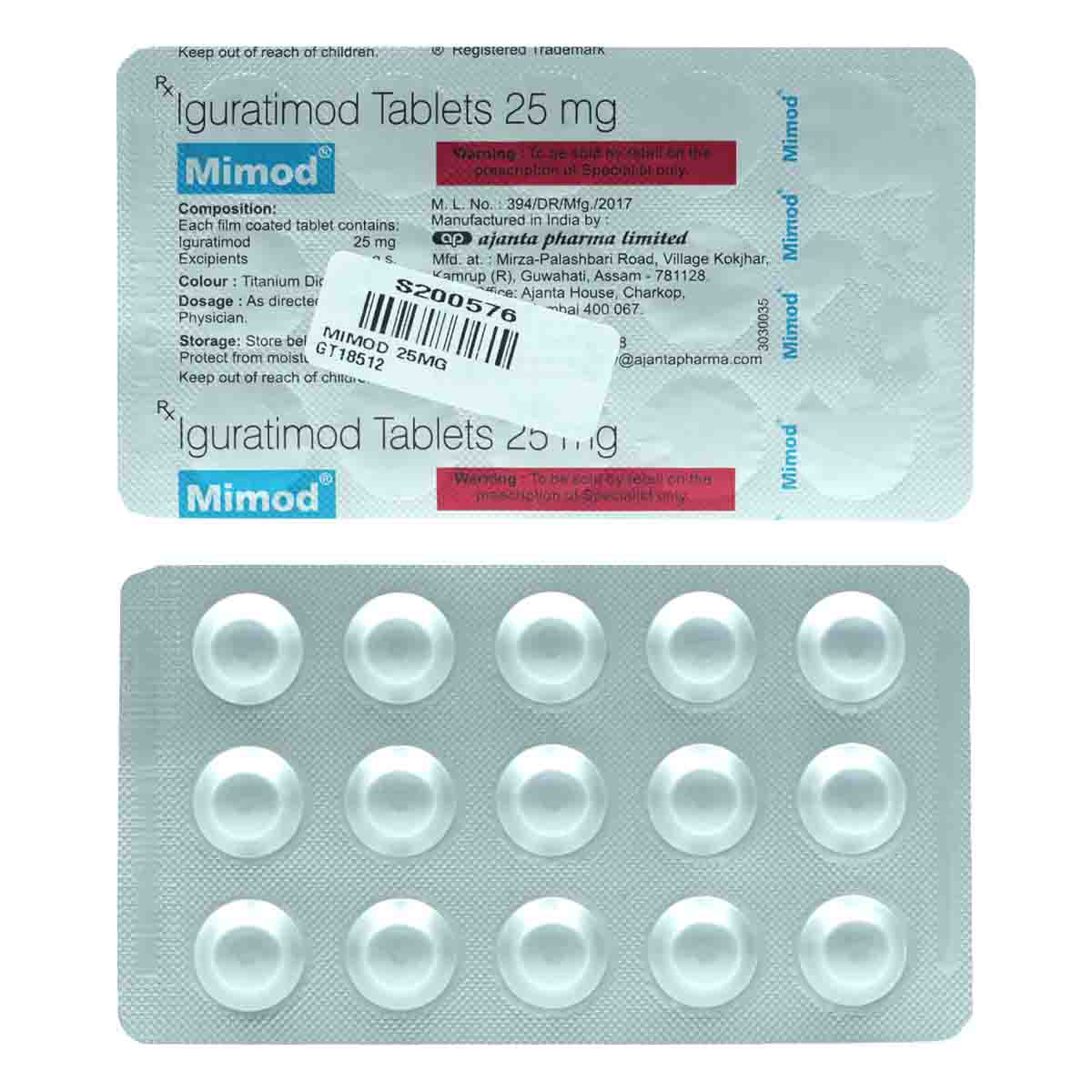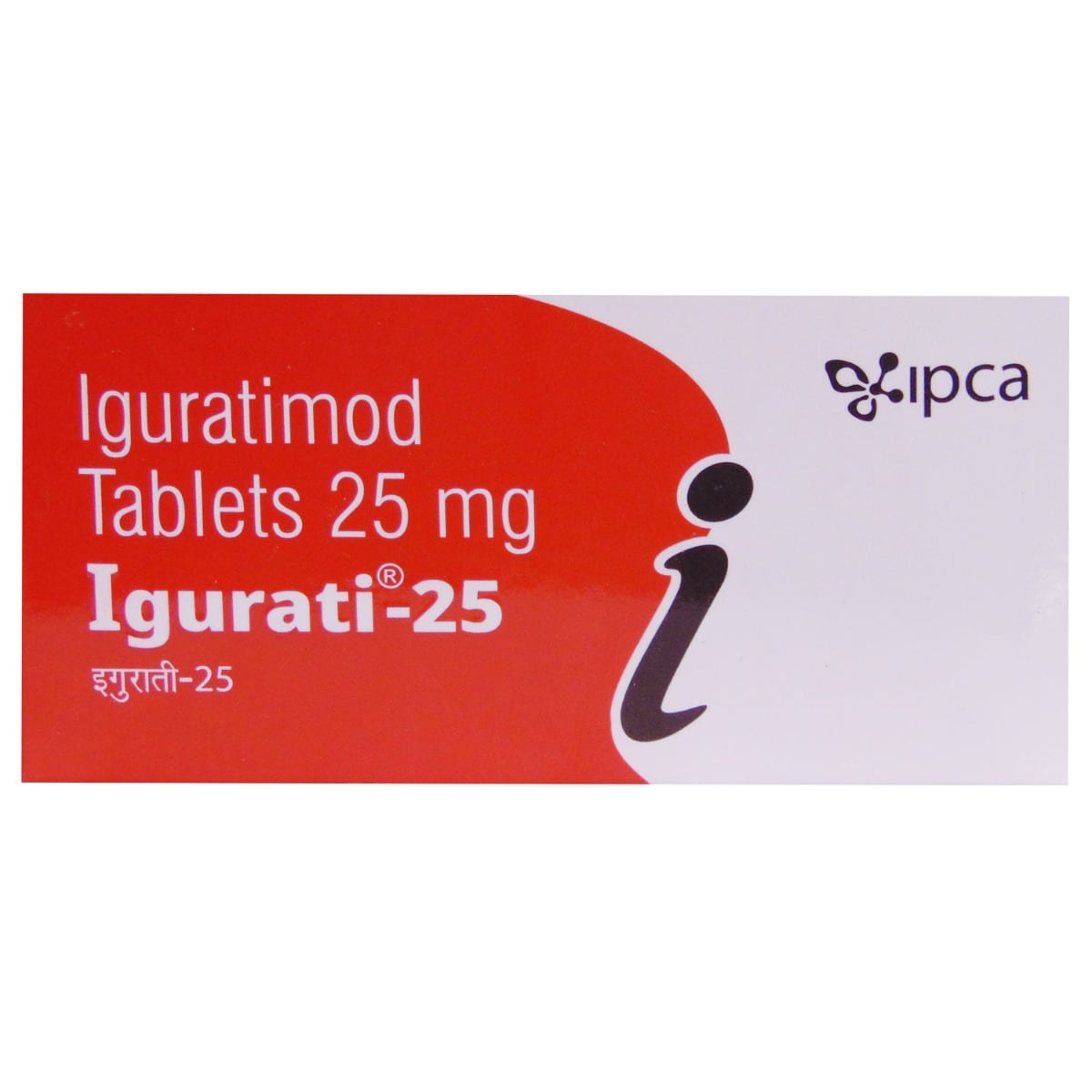Iguratimod
About Iguratimod
Iguratimod is used to treat rheumatoid arthritis. Rheumatoid arthritis is an auto-immune disease (the body's immune system attacks its tissue) which leads to joint pain and damage. It is characterised by loss of joint function, progressive bone destruction, and joint synovitis (inflammation of the joints).
Iguratimod contains Iguratimod, which inhibits the production of immunoglobulins and inflammatory cytokines. It inhibits osteoclast differentiation and bone resorption, thereby stimulating bone metabolism.
In some cases, you may experience certain common side effects, such as stomach pain, dizziness, headache, itchiness, nausea, and vomiting. Most of these side effects do not require medical attention and will resolve gradually over time. However, you are advised to talk to your doctor if you experience these side effects persistently.
Iguratimod should be taken with food to avoid any stomach upset. Swallow the medicine as a whole with a glass of water. Do not chew, bite or crush the medicine. You are advised to take Iguratimod for as long as your doctor has prescribed it for you, depending on your medical condition.
Inform your doctor if you are allergic to it. Consult your doctor if you are pregnant or breastfeeding. Iguratimod may cause dizziness, so drive with caution. Limited information is available regarding the usage of Iguratimod in children, so please consult a doctor if you have any concerns.
Uses of Iguratimod
Medicinal Benefits
- Iguratimod belongs to a group of medicines called disease-modifying anti-rheumatic drugs (DMARD) used to treat rheumatoid arthritis.
- Iguratimod inhibits the production of immunoglobulins and inflammatory cytokines.
- It inhibits osteoblastic differentiation and osteoclastogenesis (formation of bone-resorbing cells), thereby exerting an anabolic effect on bone metabolism.
- Iguratimod provides relief from pain and inflammation by inhibiting cyclooxygenase-2, an enzyme that is responsible for pain and inflammation.
Directions for Use
- Iguratimod can be taken with or without food. However, taking it food may help prevent stomach discomfort.
- It is usually taken 1-2 times daily, depending on your health condition and as advised by your doctor.
- Swallow Iguratimod as a whole with a glass of water.
- Do not break, chew, or crush it.
Storage
Side Effects of Iguratimod
- Stomach pain
- Dizziness
- Headache
- Itchiness
- Nausea
- Vomiting
Drug Warnings
- Do not take Iguratimod if you are allergic to any of its components.
- Inform your doctor if you have any liver, kidney, or heart disease conditions before taking Iguratimod.
- Consult your doctor if you are pregnant or breastfeeding.
- Iguratimod may cause dizziness, so drive with caution.
- Limited information is available regarding the usage of Iguratimod in children, so please consult a doctor.
- Let your doctor know if you are taking any prescription, non-prescription drugs or herbal products before starting Iguratimod.
- It is always important to check for the expiry of the medicine. Discard the medicine if it reaches the expiry date.
Drug Interactions
Drug-Drug Interactions: Iguratimod may interact with a blood thinner (warfarin).
Drug-Food Interactions: No interactions found/established.
Drug-Disease Interactions: No interactions found/established.
Drug-Drug Interactions Checker List:
Safety Advice

Alcohol
consult your doctorIt is not known if alcohol interacts with Iguratimod, so please consult a doctor.

Pregnancy
consult your doctorLimited information is available regarding usage of Iguratimod during pregnancy. Consult your doctor before taking Iguratimod if you are pregnant.

Breast Feeding
consult your doctorConsult your doctor if you are breastfeeding; your doctor will decide if Iguratimod can be taken by breastfeeding mothers or not.

Driving
cautionIguratimod may cause dizziness. Drive or operate machinery only if you are alert.

Liver
consult your doctorLimited information is available regarding the usage of Iguratimod in patients with liver problems. Please consult your doctor.

Kidney
consult your doctorLimited information is available regarding the usage of Iguratimod in patients with kidney problems. Please consult your doctor.

Children
consult your doctorLimited information is available regarding the usage of Iguratimod in children. Please consult a doctor.
Habit Forming
Diet & Lifestyle Advise
- Performing yoga may help in improving joint flexibility and pain management.
- Maintain a healthy weight by performing regular low-strain exercises and eating healthy food.
- Get adequate sleep as resting the muscles can help in reducing inflammation and swelling.
- De-stress yourself by meditating, reading books, taking a warm bubble bath or listening to soothing music.
- Acupuncture, massage and physical therapy may also be helpful.
- Eat food rich in antioxidants such as berries, spinach, kidney beans, dark chocolate, etc.
- Foods containing flavonoids help in reducing inflammation. These include soy, berries, broccoli, grapes and green tea.
- Avoid smoking and alcohol consumption.
Patients Concern
Disease/Condition Glossary
Rheumatoid arthritis: It is an auto-immune disease (the body's immune system attacks its tissue) that leads to joint pain and damage. It is a long-term/chronic disorder that gradually worsens over time. Rheumatoid arthritis is characterised by loss of joint function, progressive bone destruction, and joint synovitis (inflammation of the joints). Genetic, immune, and environmental factors are the causes of rheumatoid arthritis. Symptoms of rheumatoid arthritis include pain, swelling, stiffness, deformities and loss of joint function.
FAQs
Iguratimod is used to treat rheumatoid arthritis, an auto-immune disease (the body's immune system attacks its tissue) which leads to joint pain and damage.
Iguratimod inhibits the production of cyclooxygenase-2, thereby providing relief from pain and inflammation. It slows down the progression of bone and joint damage and helps reduce pain, swelling, and stiffness in the joints.
To treat your condition effectually, continue taking Iguratimod for as long as your doctor has prescribed it. Do not be reluctant to speak with your doctor if you experience any difficulty while taking Iguratimod.
If you miss a dose, try to take it as soon as you remember. However, if it is time for the scheduled dose, skip the missed dose and take the scheduled dose instead. Avoid taking two doses as it might lead to unpleasant side effects or an overdose.
Iguratimod can be taken with other medicines if advised by the doctor. Keep your doctor informed about your health condition and medications to rule out any interactions.








